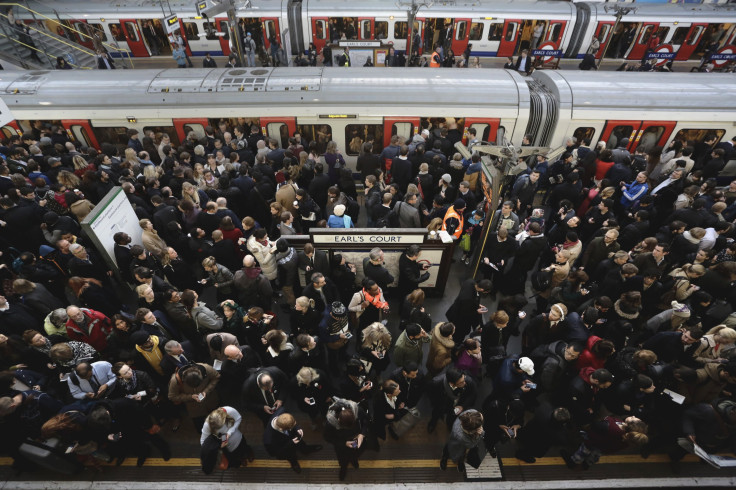London Underground Strike 2015: 24-Hour Tube Walkout Would Strand Millions, Cripple Operations

Talks resumed this week to avert a devastating strike in London’s subway system. Nearly 20,000 London Underground workers plan to walk off their jobs from Wednesday to Thursday nights -- a move that would bring operations in one of the world’s busiest urban transit networks to a grinding halt and strand millions of commuters.
Authorities are already warning passengers to make alternative plans, telling them “there will be no Tube service.”
The dispute centers around all-night weekend tube service, slated to take effect on several lines in September. Unions that represent drivers, maintenance technicians and station managers have said a proposed annual pay increase of 0.75 percent for London transit system workers isn’t enough and doesn’t reflect the coming expansion in service. The union that represents most tube drivers says the all-night service plans don’t reflect employee input over staffing and scheduling.
“Our members are entitled to a family life and to some sort of work-life balance,” Finn Brennan, district organizer for the union, said last month. “We aren’t opposed to all-night services, but we want them introduced in a fair and sensible way that rewards staff for their hard work and the contribution they make.”
Last-ditch mediation efforts this week have triggered at least one new offer from management. On Monday, shortly after the most recent talks began, London Underground extended what it called a “full and final offer” of a 2 percent pay raise, demanding a response by Monday night. Unions had no immediate reaction.
However, earlier in the day, the drivers’ union representative Brennan had said he remained pessimistic about the prospects of an agreement, telling the Financial Times that “London Underground hasn’t changed its position at all.”
The transit system maintains that no one will be expected to work extra hours as a result of all-night service.
Tube drivers at the top of the salary scale earn on average about $77,000 a year.
Strikes of this magnitude are rare for London’s subway system, since they do not typically involve the participation of so many unions at once. Work stoppages aren’t uncommon, but recent strikes have not included tube drivers. The last time drivers walked out, in 2002, they brought the vast majority of the system to a standstill.
© Copyright IBTimes 2025. All rights reserved.




















